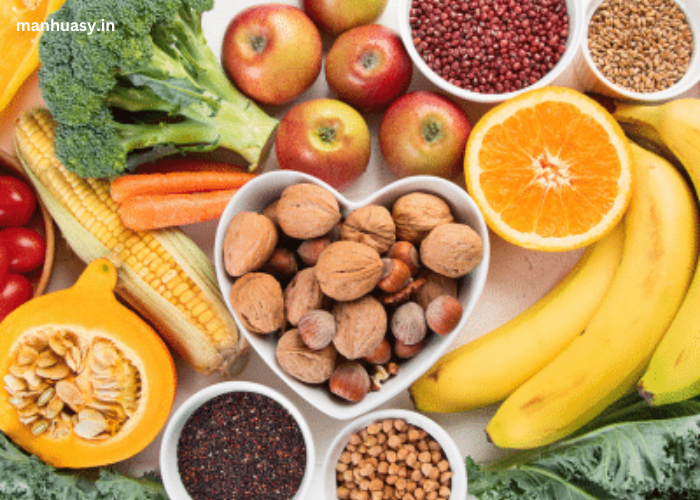Key Nutrition Advice You Need
In 2025, maintaining optimal health goes beyond basic eating habits. As our understanding of nutrition continues to evolve, we now know that the right choices in what we eat can have a profound impact on our overall wellness, energy, and longevity. With so much information available, it can be challenging to know what advice to follow. To make things easier, here’s a guide with essential nutrition advice you need to stay healthy, energized, and focused in 2025.
Nutrition is the cornerstone of good health. Whether you’re trying to improve energy levels, boost immunity, or enhance mental clarity, what you eat plays a significant role. However, it’s not just about eating the right foods – it’s about making sustainable, smart choices that will benefit your body over the long term. In 2025, more people are embracing the idea of personalized nutrition, where eating patterns are tailored to individual needs, activity levels, and health goals.
Key Points:
- Balanced, nutrient-rich foods fuel the body and mind.
- Hydration and gut health are vital aspects of nutrition in 2025.
- Reducing processed foods and focusing on whole, clean eating is essential.
1. Prioritize Whole, Natural Foods
The key to good nutrition starts with whole foods that are minimally processed. Whole foods such as fruits, vegetables, whole grains, lean proteins, and healthy fats are rich in essential nutrients and help fuel the body effectively. These foods are packed with vitamins, minerals, fiber, and antioxidants that your body needs to function optimally.
Why Whole Foods Matter for Health
Unlike processed foods, which are often stripped of vital nutrients, whole foods retain their natural goodness. They contain the vitamins and minerals that support healthy metabolic functions, immunity, and physical performance. By making whole foods the centerpiece of your diet, you ensure that your body gets the nutrients it needs while avoiding excess sugar, sodium, and unhealthy fats.
Example:
Instead of reaching for a quick snack like chips, opt for a fresh apple or a handful of mixed nuts. These whole foods will provide sustained energy, improve digestion, and offer essential nutrients without the additives and preservatives often found in processed foods.
2. Hydrate to Optimize Health
Hydration is an often-overlooked aspect of nutrition, but it’s crucial for maintaining energy levels, supporting digestion, and promoting cognitive function. In 2025, the focus on proper hydration has grown, with an increasing number of people realizing that drinking water is not just for quenching thirst—it’s vital for overall health.
The Importance of Hydration
The human body is made up of over 60% water, and every cell, tissue, and organ in your body needs water to function properly. Hydration helps with nutrient transportation, temperature regulation, and waste removal. Moreover, staying hydrated can improve your mood, enhance physical performance, and support skin health. It’s essential to not just drink water, but to also consume hydrating foods such as cucumbers, oranges, and soups.
Example:
Instead of drinking sugary sodas or energy drinks, which can lead to energy crashes, focus on drinking water throughout the day. Add a slice of lemon or cucumber for flavor, or opt for herbal teas like mint or chamomile to stay hydrated while enjoying a variety of flavors.
3. Focus on Balanced Macronutrients
Macronutrients—carbohydrates, proteins, and fats—are the building blocks of a healthy diet. A balanced intake of these macronutrients is essential for maintaining energy levels, supporting muscle growth, and keeping your metabolism functioning properly.
Understanding Macronutrient Balance
Carbohydrates are your body’s primary energy source, particularly for high-intensity physical activities. Proteins are essential for repairing tissues and building muscle. Healthy fats, especially omega-3 fatty acids, support brain health, reduce inflammation, and regulate hormones. Ensuring that you have a balance of all three macronutrients is essential for peak wellness.
Example:
A balanced meal might include a piece of grilled salmon (protein and healthy fats), quinoa (carbs), and a side of spinach (fiber and micronutrients). This combination will keep you full longer, help you recover from physical activities, and provide your body with the energy it needs for the day.
4. Prioritize Gut Health with Probiotics and Prebiotics
The health of your gut is increasingly being recognized as crucial for overall well-being. A balanced gut microbiome supports digestion, boosts immunity, and even influences mental health. As you look to improve your nutrition in 2025, it’s important to include foods that support gut health, such as probiotics and prebiotics.
Why Gut Health is Essential
The gut microbiome consists of trillions of bacteria that help digest food, produce certain vitamins, and protect against harmful pathogens. A healthy gut also plays a key role in regulating mood and supporting a strong immune system. By eating foods that support gut health, you can enhance your digestion, reduce bloating, and improve mental clarity.
Example:
Incorporate fermented foods like yogurt, kimchi, or sauerkraut into your meals. These are rich in probiotics, which can help balance gut bacteria. Prebiotic foods like garlic, onions, and bananas feed the beneficial bacteria in your gut, further promoting a healthy microbiome.
5. Reduce Processed Foods and Added Sugars
While indulging occasionally is fine, reducing your intake of processed foods and added sugars is essential for long-term health. These foods often contain empty calories, high levels of refined sugars, and unhealthy fats that contribute to weight gain, inflammation, and chronic diseases like heart disease and diabetes.
Why Reducing Processed Foods is Key
Processed foods are often high in calories but low in essential nutrients. They can cause spikes in blood sugar, leading to crashes that leave you feeling tired and hungry. Furthermore, over time, excessive consumption of processed foods can contribute to obesity, cardiovascular disease, and metabolic disorders. By reducing processed foods, you ensure that your body is getting the nutrients it needs without excess sugar and unhealthy fats.
Example:
Instead of a sugary breakfast cereal, choose oatmeal topped with berries and nuts. This meal provides fiber, healthy fats, and antioxidants while avoiding the sugar overload found in many processed cereals.
Conclusion
In 2025, achieving optimal health is more attainable than ever through smart nutrition choices. By prioritizing whole foods, staying hydrated, balancing macronutrients, and supporting gut health, you can fuel your body for peak performance and wellness. Additionally, reducing processed foods and added sugars will help you avoid unnecessary weight gain and chronic diseases. With these key nutrition tips, you’re equipped to make informed choices that support a healthier, more energized lifestyle.
By integrating these habits into your daily routine, you’ll be able to enjoy better digestion, more energy, and improved mental clarity, all of which are crucial for achieving optimal wellness in 2025. Nutrition is the foundation of your health – make sure your body gets the nutrients it needs to thrive!



